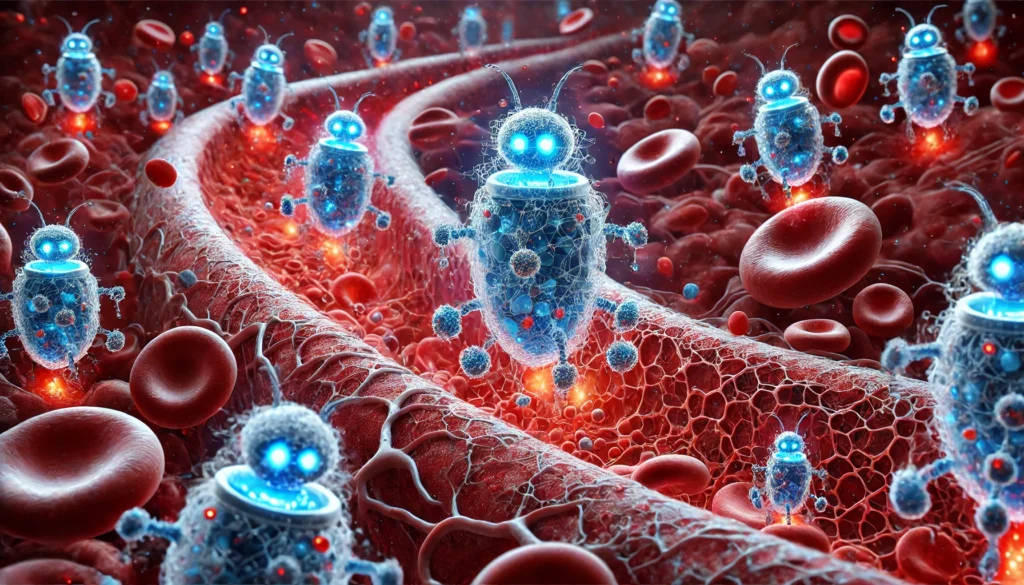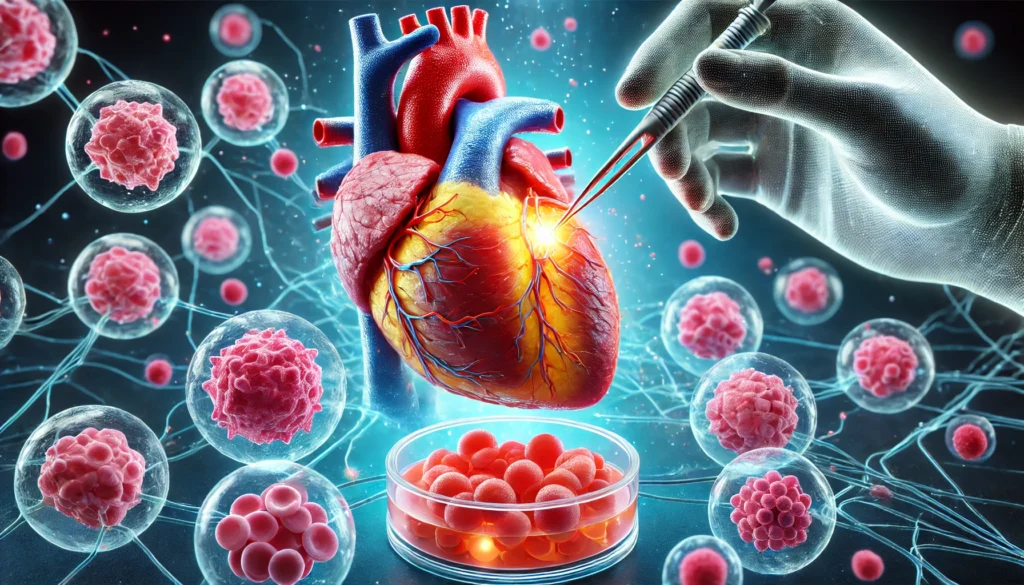Introduction
Heart disease remains one of the leading causes of mortality worldwide, affecting millions of individuals each year. Despite advances in medical research, cardiovascular conditions continue to pose significant health challenges. However, the latest research in cardiovascular medicine is paving the way for groundbreaking discoveries that offer new hope for both prevention and treatment. Scientists and medical professionals are continuously exploring innovative methods to address heart disease and prevention strategies. This article delves into recent medical breakthroughs, their implications for cardiovascular health, and the latest preventive measures to combat heart ailments effectively.
You may also like: 5 Modern Treatments for Heart Disease: Advancements in Cardiac Care
The Evolution of Cardiovascular Disease Research
Over the past few decades, research on cardiovascular disease and prevention has evolved dramatically. Historically, heart disease was primarily attributed to lifestyle factors such as diet, exercise, and smoking. However, emerging studies now highlight the role of genetic predispositions, environmental influences, and novel biomarkers in determining an individual’s cardiovascular health risk. These discoveries have led to a more comprehensive understanding of heart ailments and prevention, allowing for the development of personalized medicine tailored to individual needs.
Recent advancements in genetic research have uncovered specific genes linked to an increased risk of heart disease. The identification of these genetic markers enables early detection and intervention, significantly improving patient outcomes. Additionally, researchers have focused on the role of inflammation in cardiovascular disease, revealing that chronic inflammation can contribute to the development of atherosclerosis, a leading cause of heart attacks and strokes.

Groundbreaking Therapies in Heart Disease Treatment
One of the most significant breakthroughs in the field of cardiovascular health is the development of innovative therapies for treating heart disease. In recent years, researchers have made considerable progress in regenerative medicine, aiming to repair damaged heart tissue using stem cell therapy. Stem cells have demonstrated the potential to regenerate myocardial tissue, providing hope for patients with heart failure and other severe cardiac conditions.
Additionally, the advent of gene-editing technologies, such as CRISPR-Cas9, has opened new possibilities for treating genetic heart disorders. Scientists are exploring the potential of gene therapy to correct mutations associated with inherited cardiovascular diseases. These cutting-edge therapies could revolutionize how heart disease is managed, offering long-term solutions beyond traditional medications and surgical interventions.
Another promising advancement is the development of RNA-based therapies, including small interfering RNA (siRNA) and antisense oligonucleotides, which target specific genes involved in cholesterol metabolism. These therapies have shown significant potential in lowering LDL cholesterol levels, a critical factor in reducing the risk of cardiovascular disease.
Innovations in Non-Invasive Diagnostic Tools
Early detection is crucial for effective heart disease and prevention strategies. Recent advancements in diagnostic technology have led to the development of non-invasive imaging techniques that provide detailed insights into cardiovascular health. One such breakthrough is the use of artificial intelligence (AI) in echocardiography, which enhances the accuracy of detecting heart abnormalities and predicting future cardiovascular events.
Another notable innovation is the use of high-sensitivity cardiac biomarkers, such as troponins and natriuretic peptides, which help in identifying heart conditions at an earlier stage. These biomarkers provide valuable information about cardiac function and can detect subtle changes before symptoms manifest. Additionally, advancements in wearable technology, such as smartwatches with ECG capabilities, enable continuous heart monitoring, allowing individuals to track their cardiovascular health in real time.

The Role of Nutrition and Lifestyle in Cardiovascular Health
While medical advancements play a crucial role in combating heart disease, lifestyle modifications remain a cornerstone of cardiovascular disease and prevention. Recent studies have reinforced the importance of a heart-healthy diet, emphasizing the benefits of consuming nutrient-rich foods such as fruits, vegetables, whole grains, and lean proteins.
The Mediterranean diet, rich in healthy fats from sources like olive oil and nuts, has been widely recognized for its cardioprotective properties. Omega-3 fatty acids, found in fatty fish, have been shown to reduce inflammation and lower the risk of cardiovascular disease. Additionally, research highlights the significance of gut microbiota in heart health, suggesting that a balanced diet can positively influence gut bacteria, thereby reducing cardiovascular risk factors.
Regular physical activity is another key component in heart disease and prevention. Exercise improves cardiovascular function by enhancing blood circulation, reducing blood pressure, and promoting healthy cholesterol levels. Recent research suggests that even moderate-intensity activities, such as brisk walking, can have substantial benefits in preventing heart disease.
Cutting-Edge Drug Developments for Heart Disease
Pharmaceutical advancements have led to the development of new drug therapies targeting specific aspects of cardiovascular disease. One notable example is PCSK9 inhibitors, a class of drugs that effectively lower LDL cholesterol levels by blocking a protein that interferes with cholesterol metabolism. Clinical trials have demonstrated that these inhibitors significantly reduce the risk of heart attacks and strokes.
Additionally, SGLT2 inhibitors, originally developed for managing diabetes, have shown remarkable benefits for heart failure patients. These medications improve cardiac function by reducing fluid retention and lowering blood pressure, making them a promising treatment option for individuals with heart disease.
The Future of Cardiovascular Disease Prevention
As medical research continues to advance, the future of cardiovascular disease and prevention looks promising. Personalized medicine, driven by genetic and molecular profiling, is expected to revolutionize heart disease management by tailoring treatments to individual genetic predispositions. Moreover, advancements in telemedicine and remote patient monitoring will enhance accessibility to cardiovascular care, allowing for timely interventions and improved patient outcomes.

Frequently Asked Questions (FAQ) on Heart Disease and Prevention
1. What are some emerging risk factors for cardiovascular disease and prevention strategies? While traditional risk factors like high cholesterol, smoking, and hypertension are well-known, emerging research highlights lesser-known contributors to heart disease. Chronic stress and sleep disorders, for instance, have been linked to increased inflammation and arterial damage, emphasizing the importance of stress management and healthy sleep patterns. Additionally, air pollution exposure has been found to elevate cardiovascular risks, making air quality monitoring and pollution reduction significant public health concerns. Gut microbiome imbalances are also emerging as a potential factor in cardiovascular health, with researchers exploring how probiotics and diet modifications may help. These evolving insights underscore the importance of a multifaceted approach to heart ailments and prevention that extends beyond traditional lifestyle modifications.
2. How does gut health influence heart disease and prevention? Recent studies suggest that the gut microbiome plays a vital role in cardiovascular health. Certain gut bacteria produce compounds like trimethylamine N-oxide (TMAO), which has been linked to an increased risk of atherosclerosis. Diets high in red meat and processed foods contribute to higher TMAO levels, while plant-based diets rich in fiber promote beneficial gut bacteria. Probiotics and prebiotics are being studied for their potential to mitigate harmful microbial activity and support cardiovascular disease and prevention efforts. While more research is needed, maintaining gut health through diet and lifestyle changes could be a promising strategy for reducing heart disease risk.
3. What role does genetics play in cardiovascular disease and prevention? Genetics significantly influence an individual’s risk for heart disease, with some people inheriting predispositions for conditions such as familial hypercholesterolemia or hypertrophic cardiomyopathy. Advances in genetic testing now allow for early identification of at-risk individuals, enabling proactive heart disease and prevention strategies. Lifestyle modifications, combined with targeted medical interventions such as statin therapy or gene-based treatments, can help manage genetic risks. Researchers are also exploring gene-editing technologies like CRISPR to correct specific mutations associated with cardiovascular disease. While genetic predisposition cannot be changed, personalized medicine based on genetic insights offers new avenues for prevention and treatment.
4. How do mental health and heart disease relate to each other? Mental health disorders, including depression and anxiety, are increasingly recognized as contributing factors to heart ailments and prevention challenges. Chronic stress and negative emotional states trigger physiological responses such as increased cortisol levels and systemic inflammation, both of which can damage the cardiovascular system over time. Mindfulness-based stress reduction techniques, cognitive behavioral therapy, and social support networks are emerging as effective strategies for mitigating these risks. Additionally, studies have shown that antidepressants and psychotherapy can improve heart health by addressing underlying mental health conditions. As mental health care becomes more integrated into cardiology, addressing emotional well-being is proving to be a critical aspect of comprehensive heart disease prevention.
5. Are there any new pharmaceutical advancements in heart disease treatment? Beyond traditional statins and beta-blockers, innovative drug therapies are emerging for cardiovascular disease and prevention. PCSK9 inhibitors, which significantly lower LDL cholesterol, are now widely used for patients who do not respond well to statins. SGLT2 inhibitors, originally developed for diabetes management, have demonstrated significant benefits for heart failure patients by improving kidney function and reducing fluid retention. RNA-based therapies targeting cholesterol metabolism are also being developed, providing new avenues for treatment. Personalized medicine is becoming increasingly relevant, with pharmacogenomic testing helping doctors tailor drug therapies to an individual’s genetic profile. These advancements mark a shift toward more precise, effective, and patient-specific approaches in cardiovascular treatment.
6. Can artificial intelligence improve heart disease diagnosis and prevention? Artificial intelligence (AI) is revolutionizing cardiovascular disease and prevention through early detection and risk prediction. AI-powered imaging tools are enhancing the accuracy of echocardiograms and CT scans, allowing doctors to detect heart abnormalities with greater precision. Machine learning algorithms can analyze vast amounts of patient data to predict cardiovascular events before symptoms appear, helping clinicians implement timely interventions. Additionally, AI-driven wearable technology provides real-time heart monitoring, alerting individuals to irregularities such as atrial fibrillation. As AI continues to evolve, it is poised to play an integral role in optimizing heart disease prevention and management strategies.
7. What are the latest surgical innovations for heart ailments and prevention? Minimally invasive surgical techniques have revolutionized how heart disease is treated, reducing recovery times and improving patient outcomes. Transcatheter aortic valve replacement (TAVR) is a breakthrough procedure allowing valve replacement without open-heart surgery, making it a viable option for high-risk patients. Robotic-assisted heart surgeries offer enhanced precision, reducing complications and improving success rates. Additionally, bioengineered heart tissue is being explored as a potential solution for patients with severe cardiac damage. As surgical advancements continue, more patients will have access to safer, less invasive procedures for managing cardiovascular conditions.
8. How does climate change impact cardiovascular health? The link between climate change and cardiovascular disease is an emerging area of research. Rising temperatures and increased air pollution have been associated with higher incidences of heart attacks, strokes, and other cardiac events. Extreme heat can strain the cardiovascular system, particularly in individuals with pre-existing conditions, leading to dehydration, increased heart rate, and elevated blood pressure. Wildfire smoke and air pollutants contribute to systemic inflammation, further exacerbating cardiovascular risks. As climate change intensifies, understanding its implications on heart disease and prevention will be crucial for developing adaptive healthcare strategies.
9. What role does hydration play in heart health? Proper hydration is often overlooked in discussions about cardiovascular disease and prevention, yet it plays a critical role in maintaining heart function. Dehydration can lead to increased blood viscosity, making it harder for the heart to pump efficiently. It also contributes to electrolyte imbalances, potentially causing irregular heart rhythms. Studies suggest that chronic dehydration may elevate the risk of hypertension and kidney-related heart complications. Ensuring adequate fluid intake, especially during hot weather or intense physical activity, is a simple yet effective measure for supporting overall heart health.
10. How is longevity research influencing heart disease prevention? Advancements in longevity science are offering new perspectives on heart disease and prevention. Researchers are exploring how cellular aging impacts cardiovascular health and developing interventions to slow the aging process at a molecular level. Senolytics, drugs designed to clear out aging cells, are being studied for their potential to reduce arterial stiffness and inflammation. Caloric restriction and fasting-mimicking diets have shown promise in extending cardiovascular health by improving metabolic function. Additionally, innovations in regenerative medicine, including stem cell therapies, are being investigated for their ability to repair damaged heart tissue. These findings indicate that longevity research will play a growing role in shaping future heart disease prevention strategies.
In conclusion, the latest research in cardiovascular health offers groundbreaking insights into heart ailments and prevention. From regenerative medicine and AI-driven diagnostics to lifestyle interventions and cutting-edge pharmaceuticals, these advancements hold immense potential in reducing the global burden of heart disease. By embracing these innovations and prioritizing heart health, individuals can take proactive steps toward a longer, healthier life.
cardiovascular health research, heart disease prevention strategies, cardiac wellness tips, innovative heart treatments, heart attack risk reduction, cholesterol management techniques, stroke prevention methods, genetic factors in heart disease, heart failure treatment advancements, AI in cardiology, personalized medicine for heart health, regenerative medicine for the heart, anti-inflammatory diet for heart disease, exercise for heart health, heart-healthy lifestyle habits, early detection of heart conditions, wearable technology for heart monitoring, mental health and heart disease, gut microbiome and cardiovascular health, longevity science and heart wellness
Further Reading:
Strategies to prevent heart disease
Disclaimer
The information contained in this article is provided for general informational purposes only and is not intended to serve as medical, legal, or professional advice. While MedNewsPedia strives to present accurate, up-to-date, and reliable content, no warranty or guarantee, expressed or implied, is made regarding the completeness, accuracy, or adequacy of the information provided. Readers are strongly advised to seek the guidance of a qualified healthcare provider or other relevant professionals before acting on any information contained in this article. MedNewsPedia, its authors, editors, and contributors expressly disclaim any liability for any damages, losses, or consequences arising directly or indirectly from the use, interpretation, or reliance on any information presented herein. The views and opinions expressed in this article are those of the author(s) and do not necessarily reflect the official policies or positions of MedNewsPedia.


